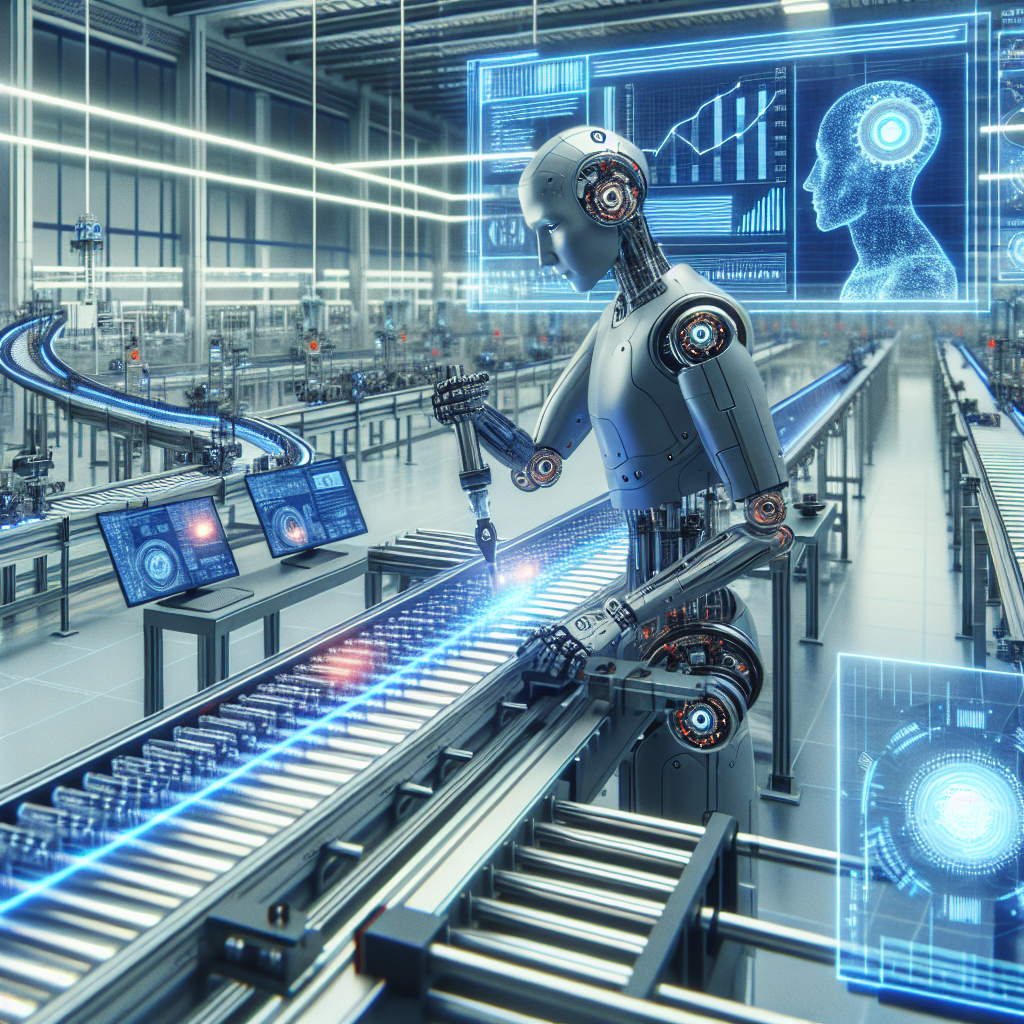In recent years, Artificial Intelligence (AI) automation has been making significant strides in revolutionizing the manufacturing industry. From optimizing production processes to improving product quality and reducing costs, AI technology is transforming the way manufacturers operate. In this article, we will explore how AI automation is reshaping the manufacturing industry and the key benefits it brings to businesses.
1. Increased efficiency and productivity
One of the primary benefits of AI automation in manufacturing is the increased efficiency and productivity it brings to the production process. AI-powered systems can analyze vast amounts of data in real-time to identify inefficiencies and bottlenecks in production lines. By optimizing production schedules, minimizing downtime, and streamlining workflows, AI automation helps manufacturers achieve higher levels of productivity and output.
2. Improved quality control
AI automation also plays a crucial role in enhancing quality control in manufacturing. By using machine learning algorithms and computer vision technology, manufacturers can detect defects and anomalies in products with greater accuracy and speed. This not only ensures that products meet quality standards but also reduces the risk of defective products reaching the market, thereby protecting the brand reputation and customer satisfaction.
3. Cost reduction
Another significant advantage of AI automation in manufacturing is cost reduction. By automating repetitive and labor-intensive tasks, manufacturers can save time and money on labor costs. Additionally, AI technology can help optimize resource allocation, minimize waste, and reduce energy consumption, leading to overall cost savings for businesses.
4. Predictive maintenance
AI automation enables manufacturers to implement predictive maintenance strategies, which can help prevent equipment failures and minimize downtime. By analyzing data from sensors and equipment, AI-powered systems can predict when maintenance is needed and schedule repairs before a breakdown occurs. This proactive approach to maintenance not only extends the lifespan of machinery but also reduces maintenance costs and improves overall equipment reliability.
5. Agile and flexible production
With AI automation, manufacturers can achieve greater agility and flexibility in production processes. AI-powered systems can adapt to changing demand, market trends, and supply chain disruptions, enabling manufacturers to respond quickly to fluctuations in the market and adjust production schedules accordingly. This flexibility allows manufacturers to meet customer demands more effectively and stay competitive in a rapidly changing industry landscape.
FAQs:
Q: What are some examples of AI automation technologies used in manufacturing?
A: Some examples of AI automation technologies used in manufacturing include robotic process automation (RPA), machine learning algorithms, computer vision systems, predictive analytics, and autonomous robots.
Q: How can manufacturers implement AI automation in their operations?
A: Manufacturers can implement AI automation in their operations by investing in AI-powered software and hardware solutions, integrating AI technology into existing systems, training employees on AI tools and processes, and partnering with AI technology providers.
Q: What are the benefits of AI automation for small and medium-sized manufacturers?
A: AI automation offers several benefits for small and medium-sized manufacturers, including increased productivity, improved quality control, cost reduction, predictive maintenance, and enhanced agility and flexibility in production processes.
Q: What are the challenges of implementing AI automation in manufacturing?
A: Some challenges of implementing AI automation in manufacturing include the initial cost of investment, the need for specialized skills and training, data privacy and security concerns, and resistance to change from employees.
In conclusion, AI automation is revolutionizing the manufacturing industry by improving efficiency, productivity, quality control, cost reduction, predictive maintenance, and agility. By harnessing the power of AI technology, manufacturers can gain a competitive edge, drive innovation, and meet the demands of a rapidly evolving market. As AI continues to advance, we can expect to see even more transformative changes in the manufacturing industry in the years to come.

